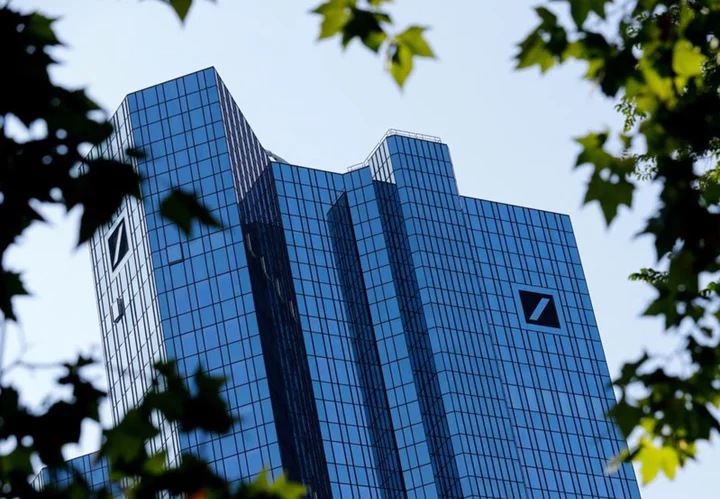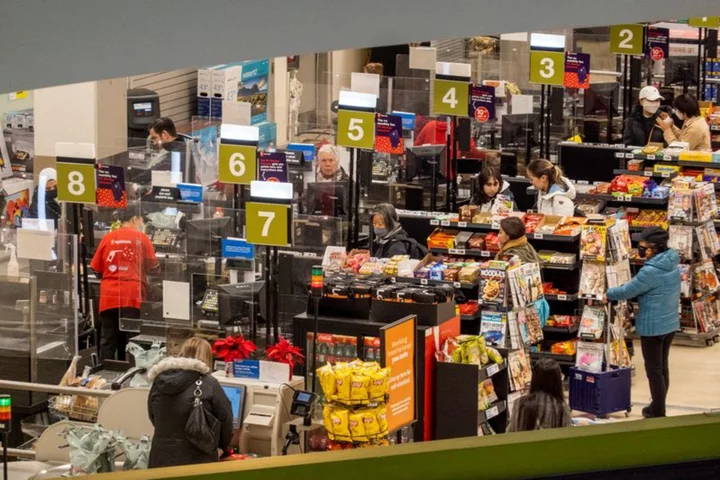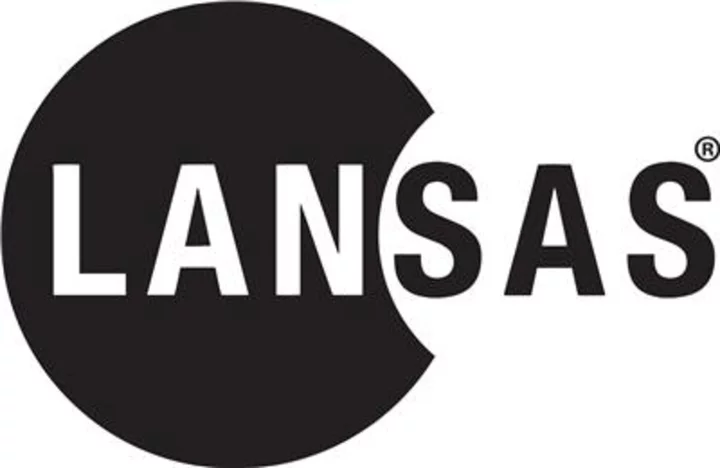By Iain Withers, Valentina Za and Jesús Aguado
LONDON/MILAN/MADRID Europe's major banks, including Deutsche Bank and Lloyds Banking Group, on Wednesday pointed to the rising risk of bad loans as the global economy struggles with slow growth and high inflation.
Financial regulators and investors are keeping a close eye on how banks navigate the uncertain economic climate and are looking in particular for any signs of stress in banks' loan books.
The latest flurry of bank earnings in Europe highlighted broader trends in global banking, where investment banks are under pressure due to a deal drought, while higher interest rates are helping profitability in retail banking.
Lloyds took a higher charge for troubled loans and missed first-half profit expectations as Britain's economic chills weighed on its finances and upped pressure on management to do more to help savers.
Analysts at JPMorgan said Lloyds' higher than expected charge for potentially soured loans - up 76% to 662 million pounds ($855 million) - and declining loan volumes would trigger downgrades of Lloyds' performance for the year.
Lloyd's shares were down 3% early on Wednesday.
Higher interest rates helped UniCredit strongly beat earnings expectations in the second quarter. While the bank continues to see a significant increase in its cost of risk ahead, it will be less than anticipated.
"We don't expect an Armageddon increase in cost of risk," CEO Andrea Orcel said.
"We continue to push into the future the expected shocks," he added.
DOWNSIDE TILT
The International Monetary Fund this week raised its 2023 global growth estimates slightly given resilient economic activity in the first quarter, but said that persistent challenges were dampening the medium-term outlook.
Inflation was coming down and acute stress in the banking sector had receded, it said, but the balance of risks facing the global economy remained tilted to the downside and credit was tight.
The European Central Bank also this week reported that euro zone companies' demand for loans dropped to the lowest on record last quarter and a further decline is likely over the summer as banks continue to tighten access to credit.
Germany's financial regulator BaFin has been calling on banks to raise the amount of money they set aside for bad loans.
Deutsche Bank on Wednesday said provisions for bad loans nearly doubled in the second quarter from a year earlier to 401 million euros.
Chief Financial Officer James von Moltke told reporters Germany's largest bank saw a "softening in some sectors".
The bank now expects provisions for souring loans to be at the "upper end" of its previous guidance.
In Spain, Santander, pointed to weakness in its key market Brazil, where net profit fell 52% year-on-year in the quarter due to a rise in costs driven by inflation, negative impact from a tax reversal and a fall of 4.3% in net interest income.
Santander's financial chief said bad loans in Brazil may have already peaked.
Later this week, European Union banking regulators are due to publish results of stress tests to check how banks could cope with a long period of high inflation and interest rates.
The European Central Bank has raised euro zone borrowing costs to their highest level in 22 years. The higher rates have helped some banks to boost performance.
UniCredit was able to raise its net profit and shareholder reward targets for the year after revenues jumped by a quarter year-on-year.
This sent the bank's shares up around 2% on Wednesday, with Jefferies saying that it sees upside potential to net interest income.
($1 = 0.7746 pounds)
($1 = 0.9024 euros)
(Writing by Tom Sims. Editing by Jane Merriman)









